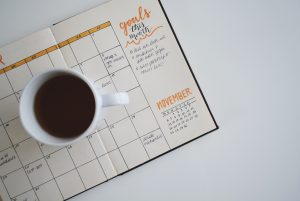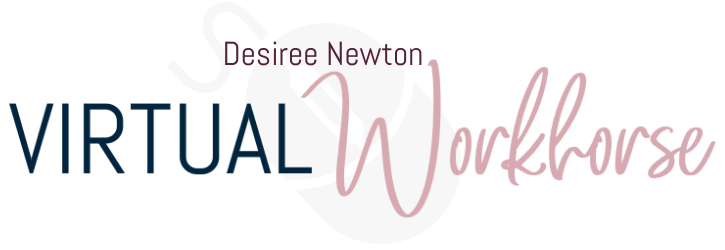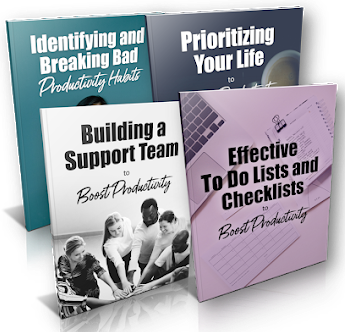5 Signs You Are Unproductive In Your Day
It can be hard to determine if you’re truly being unproductive; it takes focus and determination to look deep inside yourself and see if you have a problem with your productivity. We’re here to help.
Here are five tell-tale signs that you’re unproductive in your daily routines. These bad, unproductive habits are draining your efficiency and your energy.


1) Worrying
If you find yourself worrying in excess, you may be dealing with a productivity struggle. A good way to tell is if your worrying has become your new means of procrastination. You find yourself unable to get through a task at your usual speed because you’re spending have your time worrying you won’t do it correctly, you’ll make a mistake, or all your work will have been for naught.
2) You’ve been overworking yourself
If you find yourself highly burnt out at your job, tired all the time, and cranky to the point of biting someone’s head off at the slightest indiscretion, you’re likely overworking yourself both because of your inability to be productive and making you even more unproductive.
If you’re regularly unproductive, you have to overwork yourself in order to get everything done, but that’s a double-edged sword. The more you overwork yourself, the worst your productivity becomes causing you to, you guessed it, overwork yourself even more just to catch up. It’s a vicious cycle to which you have to put an end.
3) You spend more time on social media than anywhere else
We very rarely realize just how much time we waste each day checking our social media. We think to ourselves that we’ll just browse real quick and see what’s going on, no harm, no foul. But then, when we’re done and thinking we’ve only been away for a matter of minutes, we see it’s actually been more like half an hour.
If you find yourself constantly browsing social media, flipping away from your work and allowing yourself to be distracted, you’re likely facing productivity issues that you desperately need to address. A good way to minimize this distraction is logging off of your social media every time you finish browsing it.
Forcing yourself to have to make that extra effort to browse social media will deter you from doing it. Not having such an easy distraction right at your fingertips will help.

Complaining is one of the worst habits a person can develop. It makes you underappreciate what you have in life, causes you to focus only on the negative, and makes you a pain to be around. Complaining is also a good way to kill your productivity.
If you find yourself complaining most of the time, it’s a good sign that you’ve been unproductive lately.
5) You can’t seem to focus on anything
There are tons of reasons why we struggle to focus on a given day and being unproductive is definitely one of them. Just like with overworking yourself, your struggle to focus can both be caused by your being unproductive and can cause your inability to be productive.
If you’ve noticed that you’ve started to find it difficult to focus, you may be having a prolongued issue with your productivity. When we struggle greatly with our focus to the point that we give in to the distractions, it’s often because we’re looking for an excuse to be unproductive.
If you think you may have a productivity problem in your regular routine, it’s time to mix things up. There are a few things you can do to BOOST your productivity.
Two Keys to Boosting Productivity
The lack of productivity is not only relevant to your work days, your personal life can also suffer from a lack of productivity. This can mean unnecessary frustration and can cause undue emotional and psychological turmoil.
So how do you become more productive?
There are two key factors to being more productive: Setting Priorities and Time Management.
Setting Priorities
Productivity is a hard skill to master, but there’s one key tactic that can help ensure you’re being more productive. Setting priorities can help you keep on task and ensure everything gets done in the order in which it needs to be completed. Let’s take a look at how you can set your priorities and start being more productive.
Why Setting Priorities Works
You may think something as simple as jotting down your priorities is far too easy of a solution, but it’s not. Setting priorities is the absolute key to being and staying productive. It helps you to ensure you get everything done in a timely manner, nothing gets forgotten, and that you have time left in your day to do something for yourself.
By setting your priorities, you work to keep yourself on task, get everything done when it needs to be done, and give everything the proper attention and time it deserves. The best part is, once you’ve gotten in the habit of it, it becomes second nature.
Keeping your priorities in order in your life and your tasks can be difficult, but it’s rewarding once you get the hang of it.
Determining Your Priorities
Setting your priorities can be a challenge if you’ve never done it before. It requires a lot of thought and deliberation. Before you prioritize your tasks, you have to prioritize your life.
We all have tons of things we have to get done: we have to do lists for housework, for our jobs, for our families, for ourselves, and for our relationships. How do we decide what we do when in order to get it all done?
First things first: you have to determine what has the highest priority. These things are all important and some days, how you prioritize them may shift based on the timelines allotted, but you have to at least have a foundation of priorities with which to work. Most people would place their priorities: family, job, relationships, housework, ourselves in that order.
Once you’ve determined your life priorities, you can set your task priorities. You want to prioritize your tasks based on urgency, importance, and significance.
If you have a task that has to be done by the end of the day, you’ll want to complete it before you do something that you have a week to get done. Similarly, if you have an event that’s only going to happen once, you want to put it at the top priority so you don’t miss it.

Sticking to Your Priorities
Determining your priorities is only half the battle. Sticking to them is even more difficult. You have to keep your priorities in mind each time a new task is added to your to-do list. You have to be diligent about sticking to them; do what matters most first and then handle the rest. Take everything one task at a time and follow your list of priorities. Once you’ve successfully practiced considering your priorities list as you go through your daily tasks, you’ll get into the habit of it and develop a routine.
Productivity is hard to master, but by setting your priorities, you can get everything done in a timely manner. Setting your priorities and keeping to them is incredibly difficult, but not impossible. The best part is, once you get the hang of it, it becomes a regular routine and second nature.

Time Management
Time management is truly one of the cornerstones of productivity. If you aren’t dedicating time to perfecting your craft or reaching your goals, the likelihood that you’ll reach them is low.
Because of this, it’s vital to implement time management skills into your daily routine to reach your goals. Let’s consider how.
Plan Your Days
In the morning or even the night before, plan how much time you’ll designate to a specific task. Then, make sure to follow it. Block out enough time that allows you to thoroughly get your tasks done.
Avoid Distractions
Social media can be a major distraction that keeps us from doing what we need to do. We may blame our lack of productivity on not having enough time in the day. However, analyze how you’re spending that time.
If you notice yourself passing the time on social media or chatting with friends, it’s time to make a change. Swap out your social media time with trying to meet your goal.
For example, if you want to learn a new language but you claim to not have time, use your small breaks wisely. Use those small moments in-between obligations to meet your goals. Research a few words here and there. Sooner or later, you’ll make progress. Make time for the things you want to do.
Use Your Time Wisely
This piggybacks the second tip of making time for your goals. Each goal should have a healthy sense of urgency. Meaning, you should do all you can to get it done.
If you know you have an important task due or you want to work on your goals, give yourself a “deadline.” Tell yourself you have to accomplish this task by a specific time. By giving yourself a sense of urgency, you’re holding yourself accountable. This increases your likelihood of getting the task done.

Set alarms, set milestones, or even reward yourself when you actually meet your goals. This will keep you motivated and instill a sense of self-confidence.
In order to live a productive life, you have to manage your time wisely. Doing so takes dedication, persistence, and practice. However, you have control over your actions. Control your behavior to align with your goals and you’ll notice the BOOST in your productivity.
Is Multitasking Killing Your Focus And Productivity?
Multitasking has a tendency to be praised highly in our society; we’re encouraged to do this by our teachers and our parents when we’re younger, our bosses and superiors as we get older, and even in our daily life. But, is it actually good for us, or is it hurting us?
Despite what teachers and parents have been telling kids for a long time, our brains were only meant to do one thing at a time. According to neuroscientists, we negatively affect our productivity and mental performance when we try to multitask.

Multitasking is reducing your efficiency and your mental performance
When we multitask, we’re pulling our attention in too many different directions to be able to devote the necessary focus and attention to the important task at hand.
Earl Miller, MIT neuroscientist and leading expert on human cognition, attention, and learning said: “When we toggle between tasks, the process often feels seamless, but in reality, it requires a series of small shifts.”
When you experience these small shifts as you jump from task to task, you’re draining brain energy and resources. A study conducted by the University of California furthers Miller’s point, discovering that it takes about 23 minutes and 15 seconds for the average person to refocus after being interrupted.
Miller and other neuroscientists recommend avoiding multitasking.
“It ruins productivity, causes mistakes and impedes creative thought […] As humans, we have a very limited capacity for simultaneous thought, we can only hold a little bit of information in the mind at any single moment.”
Multitasking can actually lead to permanent brain damage
A study conducted by the University of Sussex found that “high multitaskers had less brain density in the anterior cingulate cortex,” the region of the brain that controls empathy and emotions.
This study suggests that multitasking, and multitasking through media devices in particular, could permanently alter the structure of our brains after continuous use.
Multitasking is killing your concentration and focus
The very same regions of the brain that we need in order to stay focused are easily distracted, as well. Every time we multitask, be it scrolling various social media feeds, checking texts or emails, etc., we train our brains to get distracted and easily lose focus.
“Multitasking creates a dopamine-addiction feedback loop, effectively rewarding the brain for losing focus and for constantly searching for external stimulation,” according to neuroscientist Daniel Levitin.
Just like with drugs and stress, your brain can get addicted to the rush of dopamine switching tasks and losing focus causes. Once that’s started, it becomes increasingly hard to break the habit and kick the addiction.
Multitasking causes you to become overwhelmed and burnt out.
Levitin also said that multitasking taxes our brains and drains energy.
What does this mean for you? It means you can stop worrying about doing 10 things at once – it’s proven it is not good for you. Right – as a mom I don’t know that NOT multitasking will ever be possible. I think it is just in our DNA.
But in other aspects of our life we can work to reduce multitasking by following the steps we learned previously in this post.
By prioritizing our to-do list and blocking out time to complete each task we’ll begin to see the BOOST in productivity.


 I'm a mom, coffee addict, and virtual workhorse for all the things you don't have time for. After working in the e-learning industry for 12 plus years, I couldn't think of anything I'd rather do - I thrive on helping others GET STUFF DONE! I love helping women simplify their workload so they can focus on tasks they LOVE and that bring in money.
I'm a mom, coffee addict, and virtual workhorse for all the things you don't have time for. After working in the e-learning industry for 12 plus years, I couldn't think of anything I'd rather do - I thrive on helping others GET STUFF DONE! I love helping women simplify their workload so they can focus on tasks they LOVE and that bring in money.